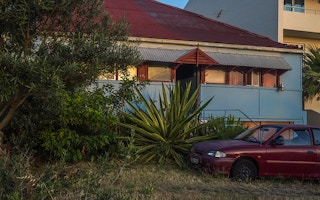Low-income households in Western Australia, particularly those who rent, are not getting an equal share of the benefit of energy efficiency options and domestic renewable energy generation, a new report has shown.
However, were there to be support to improve the situation, it could help achieve targets for reducing carbon emissions, researchers from Curtin University’s Bankwest Curtin Economics Centre said.
The report, Energy Poverty in Western Australia: A Comparative Assessment of Drivers and Effects, draws on data gathered through face-to-face interviews and a survey of over 4000 households.
The results showed that low-income households in WA are spending around 12 per cent of their income on utility bills and fuel each week, compared with 2.9 per cent for high income households.
“
The report shows over 60 per cent of low-income families surveyed indicated that they either frequently or occasionally curtailed their use of heating or cooling despite feeling discomfort.
Tom Houghton, Curtin Graduate School of Business
Lead report author, Dr Tom Houghton, Curtin Graduate School of Business, said the report findings drew attention to the fact that low-income households were failing to benefit fully from the “low-carbon dividend” resulting from improvements to energy efficiency and access to home energy generation like solar power.
“The report shows over 60 per cent of low-income families surveyed indicated that they either frequently or occasionally curtailed their use of heating or cooling despite feeling discomfort,” Dr Houghton said.
“This provides an indication that actual energy expenditure might be underestimating the energy burden of households.
“This has the potential to push low income households deeper into energy poverty, especially if fuel prices rise and the income gap between the wealthiest and the poorest continues to grow.”
One of the reasons the research identified low-income households was due to the lack of control renters have over implementing domestic solar power systems, installing insulation or improving the thermal efficiency of windows.
“Households that have been able to benefit from the installation of solar panels felt reduced anxiety with regards to their energy bills and had a greater feeling of involvement in the management of their energy expenditure,” Dr Houghton said.
“However, many households on low incomes either cannot afford investments like solar panels, or are in rented accommodation and have no control over the installation of facilities that are likely to reduce weekly energy costs.”
Rising costs of both home ownership and rising rents, combined with rising power bills, are exacerbating the problem, the report said. The highest burden of energy costs is falling on single parent households with dependent children.
The researchers also found that less than 40 per cent of privately rented properties had insulation installed, compared to over 80 per cent of private properties.
The report said that providing greater assistance for low-income households to access energy efficient appliances, install insulation or invest in technology such as solar panels could both reduce the impact of energy poverty and help meet carbon targets by reducing energy consumption and increasing the amount of low-carbon energy generation.
The researchers also said that “easing the burden placed on low-income renters by legislating higher levels of energy efficiency in rental properties could be seen as an effective policy measure”.
“Similarly stricter efficiency requirements for new build properties could result in a longer term reduction in energy expenditure for householders.
“These findings are important because they point to a need to involve all of society in the drive for decarbonisation and to ensure that all benefit from the resulting reduction in the energy burden,” the report said.
This story was published with permission from The Fifth Estate.










